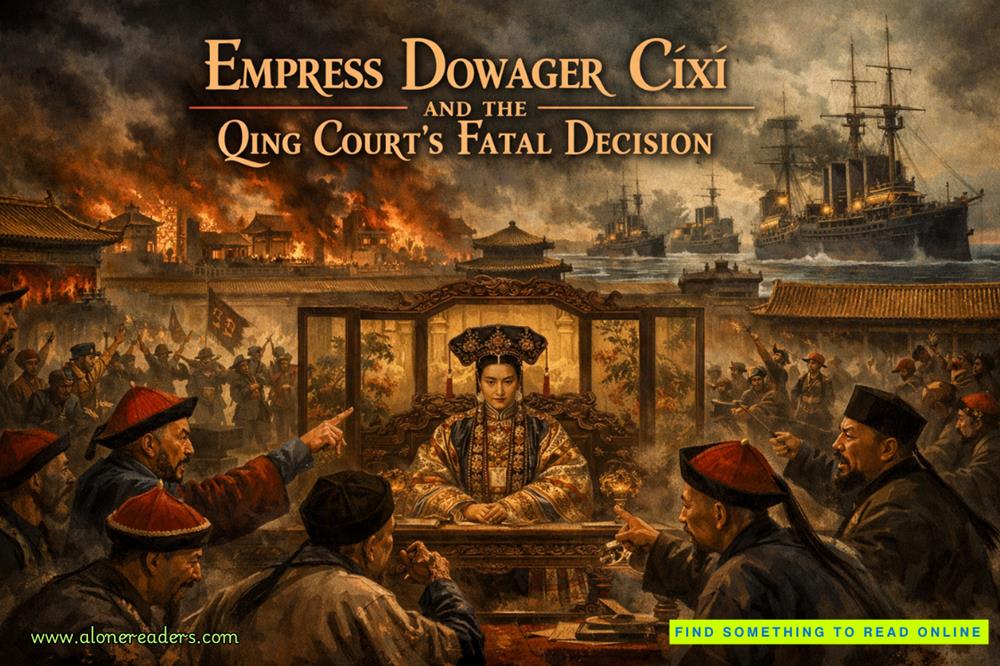Mary-Ann offered a polite smile. “That was thoughtful of you.”
He moved closer, his gaze drifting over the desk, the papers, the ledgers as if none of it quite deserved to be there. “You’ve always had a curious fondness for figures. Most ladies I know would be content to plan their wedding.”
She lifted her chin slightly. “I enjoy the work.”
He set the parcel down on the edge of the desk. “Of course. But once we’re married, you’ll have more pleasant diversions than poring over ledgers.” He turned toward the window, adding under his breath. “No more of this playing at bookkeeping.”
Her hand stilled on the folio. She wasn’t even sure why she opened it, except that she needed something familiar, something firm beneath her fingertips. Inside lay the arithmetic paper Mrs. Bainbridge had asked her to review, its clean sums now scored with her own careful red notes. Numbers. Order. Precision. Her world made sense here, and at this moment, it steadied her.
Rodney’s voice, low and dismissive, still echoed in her ears. Not loud, but sharp enough to leave a mark.
Rodney turned back to her with another smile, expecting…what? Gratitude? Compliance?
She didn’t return his smile.
A quiet twist curled in her stomach. Not because of what he said, but because of how he said it, offhanded, amused, the way one might speak of a child’s whim. As if her work, her skills, were some idle indulgence he’d been tolerating. She wondered, not for the first time, how many other parts of her he planned to smooth away, reshape, or quietly set aside.
“I should finish up here,” she said, not unkindly but without any warmth.
He held up his hands in a gesture of easy surrender. “Of course. I’ll walk you home in an hour.”
She gave a small nod but didn’t look up, her eyes fixed instead on the student’s paper.
The door closed gently behind him.
She had been grateful for his steadiness once. His calm presence was a boon in a world turned upside down. But today, he felt less like an anchor and more like a rope, gently tugging her away from the parts of herself she wasn’t ready to relinquish.
Her gaze dropped again to the column of numbers. The Lisbon discrepancy tugged at her thoughts like a loose thread. She copied a few more notes, circled the missing crates, and added a short line beneath: Ask Father.
He glanced up from his desk when she approached him with a fond smile. “You’re still chasing that Lisbon cargo?”
“It doesn’t match the dock record,” she said. “There are two crates not accounted for.”
He shrugged. “It’s likely still in storage or mislogged. You know how these things go.”
“And Rodney?” she asked, keeping her tone casual. “He’s a banker. Yet, you’ve had him reviewing the quarter reports?”
Her father leaned back slightly as if amused. “Rodney was asking a few questions. Said he wanted to understand the business better. Heisa banker. Figures and ledgers come naturally to him. And he’ll be part of the family soon enough. His interest is only normal.”
Mary-Ann had nodded, but the answer didn’t sit well. Rodney had never shown interest in the shipping operations before. And while her father had said it lightly, there had been something offhand about it, dismissive, as though it didn’t matter.
But it did matter. Every crate, every tally, every conversation. And she would continue looking until it all made sense.
She didn’t wait the full hour. She needed the air, the space. Needed to walk without someone watching her for signs of fatigue or a lapse in decorum.
She tucked the ledger beneath her arm and drew her shawl tighter against the rising wind, she left the office. The smell ofbrine and pitch hung in the air, the sound of the sea blending with the clatter of hooves and the low rumble of carts.
The long route along the docks was always livelier. Familiar. Here, she wasn’t Miss Seaton, the betrothed young woman. She was simply Miss Mary-Ann, the shipowner’s daughter, the girl who used to count crates for fun and ask too many questions about shipping manifests.
Crates thudded onto wheeled platforms. Ropes creaked above her as dockworkers coordinated the unloading of a tall brig moored near the seawall. Overhead, a large bale of cotton swung slowly on a pulley system, guided by shouted instructions and wary eyes.
A younger dockhand tipped his cap as she passed, and another called out, not unkindly, “Mind you don’t start tallying our wages next, Miss Seaton.”
She smiled faintly but said nothing. The familiarity of the banter was oddly comforting.
Sunlight reflected off the water in jagged shards, and the air was filled with the clang of chains and the deep thrum of a departing steamer’s horn. A gull swooped overhead, scattering breadcrumbs from an upturned crate. She should have felt comforted by the familiar routine, the same crates, the same shouted orders, but the knot in her stomach refused to loosen.
She passed workers who had known her since she was a girl, men who had watched her grow into her father’s shadow. One older man, Hamish, a trusted dock foreman with shoulders like stacked barrels and a permanent squint from years in the salt wind, caught her eye. He stepped away from a stack of crates, wiping his hands on a cloth as he approached. He didn’t smile like he usually did. His gait was slower, his eyes flicking once toward the warehouse before settling on her.















